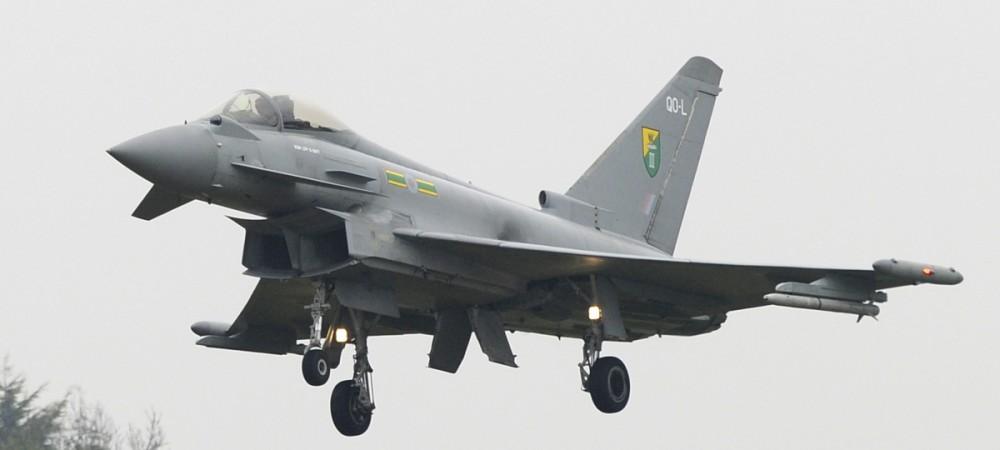
Even though Qatar has been dogged by the ongoing crisis and a boycott by seven Gulf nations, who have accused the country of funding terrorism, it seems to have its sights set on strengthening its defence position. In June, it had agreed to buy F-15 jets from the US for 10 billion euros, and on Sunday, it signed a deal with the UK to purchase 24 Typhoon fighter jets.
Qatari defence secretary Khalid bin Mohammed al-Attiyah and his British counterpart Michael Fallon signed a "statement of intent" for the UK to sell these fighter jets to Qatar "after a number of years of negotiations" between the two countries.
"This will be the first major defence contract with Qatar, one of the UK's strategic partners," Fallon said in a statement.
"This is an important moment in our defence relationship and the basis for even closer defence co-operation between our two countries. We also hope that this will help enhance security within the region across all Gulf allies and enhance Typhoon interoperability across the GCC."
Meanwhile, the British ambassador to Qatar took to Twitter and called the deal "a major step."
The UK Defence Ministry also said that it has shared a strong and long relationship with Qatar and this deal boosts this equation between the two countries, which are committed to "countering violent extremism, and ensuring peace and stability in the region."

However, the other Gulf nations may beg to differ who have slammed Qatar for its alleged links to terrorism. The Qatar crisis began on June 5, 2017, with Gulf nations including Saudi Arabia, Bahrain, Egypt and the United Arab Emirates severing diplomatic ties with the country. Since then, these nations have listed 13 demands to end the boycott.
Today, Def Sec agreed with the Qatari Defence Minister the purchase of 24 Typhoon aircraft by Qatar. Read more here: https://t.co/T9cf9vRjMS pic.twitter.com/D9pHl4Tw3f
— Ministry of Defence (@DefenceHQ) September 17, 2017
The list of demands include closing a Turkish military base, scaling down ties with Iran, shutting down Al Jazeera network, cutting ties with Muslim Brotherhood and other groups such as ISIS, Hezbollah, and al-Qaeda, and stop granting citizenship to wanted people from Saudi Arabia, UAE, Egypt and Bahrain, among others.
Meanwhile, the tensions between Qatar and Saudi Arabia refuse to die down and have, in fact, garnered more attention since the leaders of the two nations spoke over the phone in a bid to resolve the issues.
Major step today in our #defence relations: #Qatar signs w/#UK on buying 24 #typhoon. UK security inseparable from security of our friends pic.twitter.com/EIC8DNrsom
— Ajay Sharma (@AjaySharmaFCO) September 17, 2017
The conversation between Qatari ruler Sheikh Tamim bin Hamad Al Thani and Saudi Crown Prince Mohammed bin Salman was supposed to help the two nations diffuse the three-month-long issue, but the duo did not really agree on the situation.
The two parties, to begin with, could not decide on who had initiated the call. While the Saudi Press Agency said that Sheikh Tamim had "expressed his desire" to speak to the Saudi ruler and hence called him, Doha said that US President Donald Trump had helped break the ice, reported Bloomberg.
Qatar has also urged the United Nations to step in and take up the issue as it believes that the blockade is resulting in the violation of human rights.














